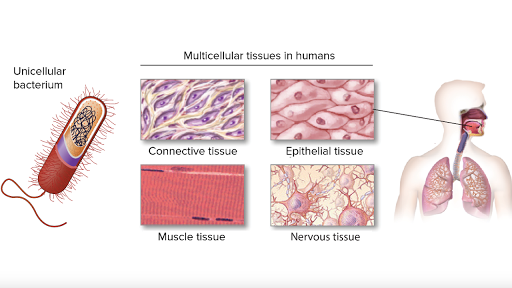- Overview
- Scientific Inquiry
- Lab techniques
- Cell Biology
- Principle 1: The Cell has a lot of Parts; But these Parts Work Together
- Principle 2: Cells Get Energy through Cellular Respiration
- Principle 3: Cells Can Use that Energy to Replicate
- Genetics
- Principle 1: DNA is the Blueprint of Life
- Principle 2: The Central Dogma of Molecular Biology is Really Dope
- Taxonomy
- Principle 1: Life is Determined by Ability to Replicate Independently
- Principle 2: Taxonomy is the Classification of Living Organisms
- Food tests
- Practice

Overview
Scientific Inquiry
Lab techniques
Cell Biology
There are three important principles of cell biology…
Principle 1: The Cell has a lot of Parts; But these Parts Work Together
In addition to the cell membrane, each (eukaryotic) cell has numerous components called organelles. Read important information about the organelles below:
Principle 2: Cells Get Energy through Cellular Respiration
One of the most important (yet pretty complicated) component of cells is their ability to create energy in the form of a molecule called ATP. Because there are a lot of moving parts, I recommend first watching a video to get a good overview of cellular respiration.
Principle 3: Cells Can Use that Energy to Replicate
The final important concept is how cells can now use ATP to grow and even completely replicate.
Inside your body right now, billions of cells are probably in the process of replicating to help you grow and replace older cells. Interestingly, cancer is when your cells replicate out of control and start hurting your body.
Genetics
Principle 1: DNA is the Blueprint of Life
DNA is often called your genetic “blueprint”. Although we already discussed the structure of DNA in the Biochemistry section, here is an overview of how that DNA is important for creating and passing on life.
However, sometimes errors occur during DNA replications which can cause mutations and disorders.
Principle 2: The Central Dogma of Molecular Biology is Really Dope
The Central Dogma of Molecular Biology is just a big term to describe the process of how DNA eventually becomes protein.
The main concept you need to know is that DNA becomes RNA which then becomes protein.
There are three mechanisms you should be familiar with:
- DNA replication (DNA —> DNA)
- Transcription (DNA —> RNA)
- Translation (RNA —> Protein)
Learn the basics of these steps below:

Taxonomy
Principle 1: Life is Determined by Ability to Replicate Independently
Humans, bacteria, fungus, and even grass can all create more of itself through a process called reproduction.
However, a virus cannot reproduce without depending on the machinery of another organism called its host. Therefore, for a virus to be successful, it needs to always infect some other organism, making viruses contagious.
Principle 2: Taxonomy is the Classification of Living Organisms
What makes a dog a dog? Why are there so many different types of dogs? What makes one type of dog different from the other?
Are humans related to monkeys? How closely related are we? Can we consider humans to just be another type of ape?














